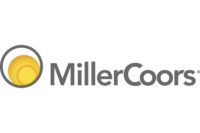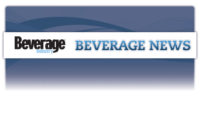Distributing Beer At Its Best
By ELIZABETH FUHRMAN
Origlio Beverage is not just a beer wholesaler,
but a progressive beer micromarketer
The challenges of trying
to get ahead in the beer business will come as no surprise to industry
watchers. It’s a tough market with beer sales flat or down, and wine
and liquor taking market share. So what does it take for a beer wholesaler
to achieve sales growth of 2 to 3 percent so far in 2005?
“Right beer, right market,” say employees
of Origlio Beverage in Philadelphia, Beverage
Industry’s Beer Wholesaler of the Year.
“It’s not only the right beer for the right account, but the
right program for the right channel, the right territory, the right
county,” explains Dominic Origlio, president and third-generation
owner of Origlio Beverage.
A beer wholesaler representing 15 companies that
includes brands such as Coors, Yuengling, Heineken, Guinness, Corona,
Rolling Rock and Samuel Adams, and one bottled water manufacturer —
the recently added Voss Water — Origlio distributes to nearly 3,900
customers, and of that nearly 300 are retail
beer distributors, in the five-county Philadelphia area.
“Most multi-brand houses struggle with managing
all the brands in the house,” Origlio says. “That is absolutely
our biggest challenge moving forward is how to give focus and attention to
all of these great suppliers that we represent. Having the proper
information at our fingertips, the technology advancements that we make and
the smart people that we have working for us, we know what accounts should
carry which brands.”
“It’s not just all about putting one brand
into as many accounts as you can, because we know up front that some of
those accounts aren’t going to be able to sell that brand,” he
continues. “It’s an education process for the distributors and
the suppliers. It’s the right beer in the right account. That’s
the mantra around here, because we’ve seen too many times where it is
wasted effort.”
The mass marketing days are over for Origlio Beverage
as a multi-brand house. “We truly have entered an era where the
wholesaler, sometimes derided as the middleman, really needs to be a
micromarketer,” says Maryanne Origlio, who heads corporate
communications and is Dominic’s wife. “With a lot of high-end
brands, it’s important for our salespeople to know the heritage and
attributes of the products, and we’re even taking that as far as
thinking about what type of menu opportunities the brands have — bar
menus and even dessert menus. These things are becoming more and more
important so we can distinguish each one of these products and give them
what they deserve.”
Origlio Beverage began when founder Antonio Origlio
started a beer retail operation after Prohibition ended in 1933, and the
state of Pennsylvania took over liquor and wine distribution. In the 1950s,
the second generation of owners began wholesale distribution of some local
brands for small breweries. In 1954, Origlio Beverage was awarded Rolling
Rock, and added Heineken 10 years later. The size of the company remained
fairly constant until the early ‘80s when Origlio Beverage brought
the Guinness Import Co. brands for all five counties, pushing it to the
status of a beer wholesaler serving the entire Philadelphia metro market.
In 1988, Origlio Beverage’s partner Jeffery
Honickman was awarded the Coors franchise and at that time the Honickman
and Origlio families merged their companies. Within six weeks of adding
Coors, Origlio introduced Corona to its distribution. In 1991, Origlio
Beverage moved into an 80,000-square-foot facility and soon added Mark
Anthony Brands and McKenzie River products.
Before Origlio entered into a partnership with
Honickman, the company was distributing around 1.5 million cases. In one
year, it grew 100 percent to 3 million cases. And just as Origlio Beverage
was moving into its new 264,000-square-foot facility in 2001, it also
signed an agreement to carry the Yuengling, Boston Beer and Barton Beers
portfolios, adding 3 million cases and bringing it close to its
distribution today of 13.5 million cases. This addition also made the
company too small for the building it was moving into, and Origlio kept its
old 80,000-square-foot facility for storage.
Today, Coors Brewing Co. products make up 40 percent
of Origlio Beverage’s $160 million sales (Beverage Industry estimate),
followed by D.G. Yuengling brands with 22 percent; Gambrinus and Heineken
USA portfolios, both at 12 percent; Diageo and InBev brands, both at 5
percent; Boston Beer Co. at 2 percent; and the rest of the suppliers
contributing to the final 2 percent.
As of Sept. 4, Origlio Beverage also has additional
sales opportunities granted by the passage of Sunday sales in Pennsylvania.
While state stores (which sell only liquor and wine) have been open from
noon to 5 p.m. on Sundays for the past two years, state law prohibited
consumers from buying more than two six-packs of beer at a time, which made
it very difficult to compete with border states. The company is not sure
what type of sales increase it will see, but does expect to see a jump
similar to other states that have passed such laws.
The micromarketer
Origlio’s life as a beer wholesaler is pretty
unique in the fact that customers call in their orders instead of
salespersons taking orders. Plus, Origlio Beverage operates within a
four-tier system, with some tavern customers and restaurants buying from
another tier of beer distributors that buy from Origlio. But
Origlio’s sales staff still calls on those accounts just like they
would a direct account, so the company had to figure out a way to capture
what it has in stock and what beers it has on draft. Through the sales
team’s handheld systems, Origlio tracks its distribution in the
marketplace and sets up its routes.
The team looks at real-time data for sales. When
salespeople call on a customer, the information is downloaded into their
handhelds so they can easily use that as a selling tool to discuss velocity
and talk about previous history when looking at inventories. Additionally,
salespeople like to have constant updates of what they call “knob
maintenance,” where they can update the draft handles in each
account. The team also tracks competitive activity, and in some cases,
merchandising initiatives as well.
In addition to the handheld technology, Origlio uses
Salient’s Margin Minder software to figure out, for example, which
accounts handle which products. “It really pinpoints very quickly
what we should be working on when we sit with suppliers, where our holes
are, where distribution voids are and what opportunities are in the
marketplace,” says Tim Donnelly, vice president of Kramer Beverage
Co., Hammonton, N.J., in which Origlio and Honickman also own an interest.
“We have made the commitment to train for Margin
Minder at the sales supervisor level and
up,” Origlio continues. “It’s something that I really
envision our salesmen getting more involved with so they take ownership of
their own territory and what opportunities exist out there.”
Origlio operates channel-specific sales teams that
include on-premise, off-premise, regional accounts, key accounts and delis. “We have sales reps that focus on one
specific channel, which enables them to concentrate and be able to execute
much more efficiently,” Donnelly says.
To meet suppliers’ demands for excellence in
execution and Origlio’s desires to succeed in the field, the company
recognized it had to let the sales team focus on execution, targeting and
getting the job done on the street. The sales staff needed help in
preparing a message that would be effective at retail, and Origlio
developed a dedicated marketing team with brand management. “We have
a structure where we have four brand managers responsible for three or four suppliers each,” explains Mike Gray,
director of marketing. “By doing this, we feel like we give every
supplier their fair chance to come in, speak with us and set up
programming, so they don’t get lost in the shuffle.”
This fits together nicely with the channel-specific
sales teams, Donnelly continues. “When programs are developed, they
are not just programs for the entire market,” he says. “They
are very specific to the county, market type, on or off premise, ethnicity
and so on.”
The brand-managed marketing teams are able to plan
ahead six months to a year. “We’re able to be absolutely
prepared and targeted when it’s time for us to go and execute
programs on the street,” says Grant Barrett, on-premise sales
manager. “It’s been a powerful combination to have this
dedicated staff making sure all the resources that we need are ready to go
and that we align them against the correct targets and opportunities.
It’s made us very effective.”
As Origlio went through this explosive growth period
during the past five years, the company
realized it needed to get feedback from its employees as well as its
customers about what could be done more efficiently. So it created the
Customer Accountability Service Excellence (CASE) program — a
cross-functional group of teams that include loaders, salespeople, district
managers, drivers, customer service and finance representatives. Each team
focuses on a core part of Origlio’s business such as operational
efficiencies, selling skills, merchandising and training. “Every
month they meet and make recommendations to a steering committee on things
they could implement or change in the way we go to business to improve our
service level to customers,” Barrett says. The groups have brought
more than a dozen ideas to the company including Retail Advisory Panels
(RAP).
RAP sessions, as the company calls them, bring in
large to small retailers across different markets — for example beer
distributors, deli take-out stores or on-premise accounts — and ask
them: “What do we need to do better? What are we succeeding in? What
are we not? What are other distributors doing better, even if that
distributor isn’t in the beer industry?”
“One of the things that we’ve undertaken
is that we have really not been afraid to look in the mirror,”
Barrett says. “We’ve made huge investments to have people come
in and talk to our employees and talk to our customers and come back and
give some very candid and very constructive criticism.”
Upscale ups sales
Because of the liquor and wine business growth that is
occurring and taking share from beer, Origlio Beverage is trying to turn
the tables for their portfolio of beers. “We really feel that beer
has to have more sophistication around it; more youthfulness around
it,” Origlio says.
In turn, Origlio has actively tried to take beer back
to its heritage. “Maybe because the marketing was funny, it drove
sales, but it undercut the image,” Maryanne Origlio says.
“Beer, like wine, can have its own terroir and matches beautifully
with food ... The consumer needs to be reminded and also needs to be given
permission to enjoy a beer in public without the fear of being seen as
unsophisticated.”
Origlio finds itself fortunate right now that
Philadelphians are interested in discovering new, unique imported products,
and the company is in the position to maximize those opportunities because
of its portfolio. The more than 18 percent volume growth that Origlio has
gained with Diageo’s total beer portfolio, which includes Guinness,
Harp and Smithwicks, helped it earn Diageo’s Golden Bar Award
this year for Beer Distributor of the Year. Additionally, the company grew
Guinness volumes by 10 percent and Diageo’s flavored-malt beverages,
which include the Smirnoff Ice and Smirnoff Twisted V products, by 8
percent.
Equally important to becoming distributor of the year
is how Origlio Beverage brought Smithwicks to Philadelphia, and became the
No. 1 distributor of the product by volume for Diageo. Origlio launched the
new brand into Philadelphia as a test market for Diageo and identified 25
key customers that fit the target of Smithwicks, Barrett says.
“We worked very hard at promoting the product the right way,
with even the right kind of kick-off party to engage servers in those
accounts,” he explains. “It created an almost viral effect
where accounts were beginning to clamor because consumers would be asking
for it.”
Origlio slowly expanded the account base, and
Smithwicks now appears in 1,000 accounts across the counties. “We
were very careful, very slow and very deliberate about the way we did
it,” Barrett says. “I think that allowed us to be very
successful.”
That is not to say Origlio isn’t finding success
with its domestics as well. Although Yuengling is a mature brand in
Philadelphia — it is brewed in nearby Pottsville, Pa. — the
five-county area is still the brand’s largest market, and it holds
about 10 percent of the market share and accounts for more than 20 percent
of Yuengling’s sales. “It’s perceived as more
high-quality than most domestics,” says William Castelberg, director
of sales. “It’s somewhere in between a premium product and a
microbrew, even though it is domestically priced.”
Similar to Yuengling’s popularity in
Philadelphia, Origlio is noticing the resurgence of other “consumer
discovery” brands, old brands with a new cachet, and sees growth
potential for these types of beer in its market.
From a corporate communications perspective, Origlio
Beverage tries to elevate the imagery of all beer for all its retailers
whether it’s through locally hosted beer and food pairings or its
first time at publishing a 26-page glossy magazine for a Philadelphia
lifestyle newspaper.
“We have full control of the editorial content,
so we are discussing attributes of each one of our brands,” Maryanne
Origlio says. “We’re hoping that it will stay around on coffee
tables or in young adults’ apartments.”
For Origlio’s customers, the company publishes
“Heady Times,” a quarterly newsletter designed to educate
retailers on subjects such as brand news, promotions, industry trends and
legislation. The newsletter, as well as more information about the brands
Origlio offers, is posted on the company’s Web site for retailers.
Along with social responsibility and TIPS training, Origlio also publishes
a quarterly beer and food pairing poster to further foster beer education
at the retail level.
Beverage Industry’s choice
for Beer Wholesaler of the Year performs all these activities in the
marketplace while operating technologically advanced systems and executing
programs meticulously. Origlio’s goal for new sales advantages and
opportunities remains undaunted, along with keeping the best interest of
the beer suppliers in mind.
“We want to grow,” Origlio says,
“and we want to grow in the beer business.” BI
In 2001, Origlio Beverage
moved into a newly built 264,000-square-foot facility from its old
80,000-square-foot building. That same day, Origlio picked up the
Yuengling, Boston Beer and Barton Beers portfolios, making it necessary to
keep using its old facility for storage.
But the new building provided Origlio the space to
help its organization grow. The facility offers the company 28,000 square
feet of office space on two levels. Among training rooms, conference rooms,
offices, a gym and break room, Origlio set aside space for a permanent
point-of-sale room. Merchandising materials are unloaded directly from a
load lane into a second-story secured room. Every item is tagged and
inventoried just like a case of beer, so if someone needs an item for a
particular brand, the salesperson knows exactly where it is and how many
the company has in stock. When the promotion item goes into the trade, it
is documented. The person in charge in the point-of-sale room will make
sure the right salesperson gets the right pieces, and Origlio ensures this
by giving each salesperson their own locker with their own point-of-sale
materials.
This dedication to promotion and thoroughness at point
of sale can even be seen in Origlio’s plastic pallets. The company
made a $500,000 investment in black plastic pallets with a gold Origlio
emblem for Coors products. Even though Coors products arrive at the
warehouse on plastic slip sheets, Origlio replaces those slip sheets with
the Origlio branded ones for a more upscale look at retail locations.
Coors sales make up about 40 percent of the
company’s revenue, so Origlio designated a 63,000-square-foot
refrigerator for Coors in which it also stores all its keg beer. The new
warehouse features racks that can go four high, keeping products secure and
significantly has reduced bottom row damage to products. This leaves the
company with 108,000 square feet for dry storage of products. Origlio uses
double-wide forklifts to unload trucks two pallets at a time and put
products away two pallets at a time, which has dramatically improved
productivity in operations.
Between the warehouse and refrigerator wall and the
office space is a load lane where air is filtered to alleviate diesel fumes
and to keep the area from overheating. The load lane offers enough room to
load 25 trucks at a time if the company wishes. Since moving into the new
building, Origlio Beverage uses the Arc Logistics Routing System, which
organizes its 60 truck routes and ties into Origlio’s VIP beverage
software.
Because of Origlio’s rapid growth during the
past few years, it became a challenge to get the beer out, says Dominic
Origlio, the company’s president. Because everyone wanted to receive
their orders on Wednesday, Thursday or Friday, Origlio came up with a
program that offered early-week and early-morning deliveries at a
discounted price. For example, if a distributor gets his beer before 6
a.m., the truck can be back to the warehouse by 7 a.m. “We can turn
trucks around very quickly,” Origlio says. “The driver gets
done early, and the customers save money on their beer because of
that.”
The program has allowed Origlio’s merchandisers
to capture display space earlier in the week, and also has allowed Origlio
to use its equipment more efficiently.
Another feature that makes distribution easier for
retailers is Origlio’s Web site. Customers can go online and pull up
their entire inventory, order history and view their past invoices. The Web
site also informs the customer of the deals Origlio is offering and
information on brands. As one of the first distributors in its market to
offer an online order system, Origlio continues to see more customers move
to this online order option every month. BI
People first
Rarely can one find a person at the director level who
is taking the lead on recruiting, hiring and training. But Origlio Beverage believes this sends a clear message that
first-rate people is a No. 1 priority to the success of the company.
“I’m a great believer in good
people,” says Dominic Origlio, the company’s president.
“I don’t think there is a beer wholesaler in the whole country
that doesn’t grapple with this every day. It’s really a
concern. How do you hire good people? How do you train them? How do you
keep them motivated? It’s really a process here.”
With 200 employees at the Philadelphia location
— 100 in operations, 50 in sales, 20 in finance and administration,
10 in marketing and graphics and the rest making up the support staff
— Bryan Griffin heads corporate development, attending job fairs and
advertising positions at local colleges. New hires go through an
orientation process and also spend a day each with a driver, salesperson,
merchandiser, and in the warehouse and in the customer service/finance
department. Employee education also receives the space it needs with a
dedicated training room.
Along with a gym on site and available trainer,
employees also receive the perk of a free pizza lunch on Fridays, a
tradition that Dominic Origlio’s father started more than 20 years
ago. Employees also are rewarded with the Going the Extra Mile (GEM)
Awards. Once a quarter, employees from the finance/administration, sales
and marketing and operations department receive a $500 award for being
nominated by a customer, co-worker or supplier for going above and beyond.
Origlio Beverage matches the award by giving a $1,500 donation to a local
charity for mentally challenged adults and children.



